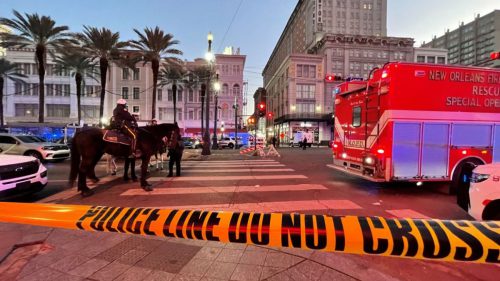

BreakPoint
The Dorchester Miracle
Eight years ago, the Boston neighborhood known as Dorchester had hit bottom. The crack epidemic had not only produced hundreds of addicts, it had spawned a terrible wave of violence, in particular among young people. The extent of the problem was driven home when, at a funeral for the victim of a drive-by shooting, gang members entered the church and began shooting and stabbing one another in front of the congregation. Out of this mixture of shock and outrage was born a model for reclaiming neighborhoods like Dorchester—not only in Boston, but across the country. The model became known as the "Ten Point Coalition," and the driving force behind the coalition was Eugene Rivers, the pastor of the Azusa Christian Community in Dorchester. Rivers, who was a gang member in his youth, had personally witnessed the toll violence had taken. His own home had been shot into twice, and broken into many more times. One day he asked a local drug dealer, "Why did we lose you? Why are we losing other kids now?" The dealer told him "I'm there. You're not. When the boy... wants a pair of sneakers or just somebody older to talk to or feel safe and strong around, I'm there, you're not... I win, you lose...." As a result of this conversation, Rivers and other pastors made it their mission to "be there." The plan was multi-faceted. It included summer recreation and literacy programs. It included mentoring programs and one-on-one drug treatment programs. And Christians manned neighborhood patrols. After Dorchester's pastors proved their commitment to both their community and the lives of Boston's young people, they were invited to participate in various criminal justice initiatives. These included anti- gang policing, juvenile probation monitoring, and crime prevention initiatives. This commitment to kids reflects a Christian understanding of human nature. Rivers won't hesitate to recommend locking up a dangerous juvenile. Nor will he flinch from telling parents that their 14- year-old son is a "sociopath" or "a homicide waiting to happen." He knows that Christian love of neighbor includes telling the truth about their condition. The results the pastors achieved in Boston were astounding. The crime rate dropped 77 percent in less than a decade. Even more amazing, Boston, which had averaged nearly 20 juvenile homicides in the years preceding the Ten Point Coalition, went nearly five years without a single juvenile murder. What's more, the drop was accomplished without an accompanying rise in tension between the police and community - as has happened, sadly, in New York. Their Ten Point model has now spread to other cities and is credited with helping reduce crime in neighborhoods that, like Dorchester, some people had given up on. In addition to saving lives and bringing hope where none existed, the story of Eugene Rivers and the Ten Point Coalition is a reminder of why, as Augustine said, Christians make the best citizens. Love of God and neighbor drives Christians—like Eugene Rivers and his friends—to do more than is required. It moves them to go places that government can't and won't go, to "be there." And it's a great testimony of what happens when faith-based solutions replace cumbersome government bureaucracies.
08/2/00















